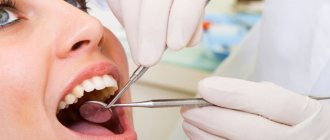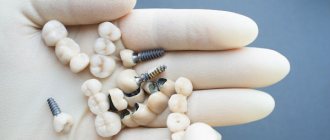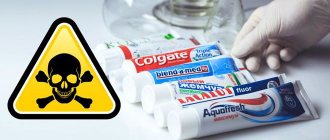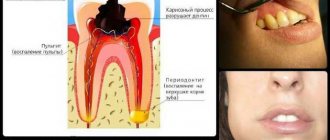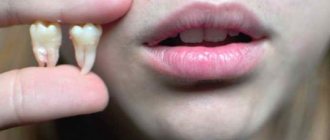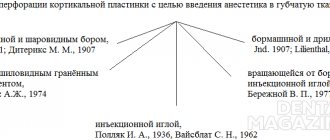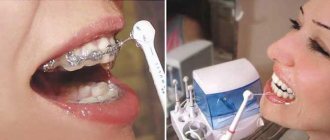Is the bulletin required when visiting a dentist?
Modern dentistry is well developed, so in most cases there are no unpleasant consequences after operations. Still, it cannot be guaranteed that tooth extraction will take place without problems, so doctors advise obtaining a certificate of incapacity for work in order to rest peacefully after the operation. But it is not always possible to draw up a document.
5 cases when a ballot is issued:
- Problems arise with molar removal. The doctor has to drill into the bone tissue or partially remove the gum. Such operations are often performed when the tooth has not fully erupted.
- A medical error has been made. Even an experienced doctor can make a mistake, which will lead to unpleasant consequences.
- The patient developed an allergic reaction to the drug. Often a person does not realize that he is intolerant to certain components of the medicine. Therefore, there is a reaction in the form of malaise or swelling. Sometimes hospital treatment may be required.
- Before the operation began, an infectious infection of the tissue around the tooth occurred. Do not delay visiting the dental clinic. Soft tissues are damaged while the tooth grows. This fact leads to infection occurring. You may need emergency medical attention.
Sick leave for tooth extraction is necessary for emergency surgery because the dentist did not provide the necessary preparation. After the removal of a wisdom tooth, a bulletin is issued for the entire period of inpatient treatment.
- The person does not feel well after the procedures, so a sick leave is required upon removal. Adverse consequences occur if hygiene is not maintained after removal.
An unfavorable consequence of the operation is a rise in temperature, swelling of the cheeks or gums. These reasons are enough for the dentist to give you a sick leave.
So, the reasons listed are enough to answer positively the question, is sick leave given for tooth extraction? The operation itself is not a reason to exempt a person from going to work. If complications arise, sick leave is issued.
Sick leave from the dentist?
This was at the end of May.
Many people are faced with the problem of crooked wisdom teeth, and this problem has not escaped me. At first my cheek just hurt in the area of the bottom eight, but after a couple of days the pain went away on its own.
Over time, the tooth began to steadily pester me once a month, but at the end of spring the pain no longer went away, but only began to increase. I had an appointment with the dentist for the beginning of June, but I couldn’t stand it for so long.
One Friday morning I woke up with a swollen cheek and realized that I urgently needed to see the dentist.
I called and explained the situation, but he said that he couldn’t do it before my appointment, but tomorrow (Saturday), he had an intern working at his clinic and he could remove the flux so that I could wait another week until my appointment. I was on painkillers all day.
It’s not that the pain was unbearable, but I drank three sachets of Nimesil in a day, since there was a lot of work, and at that time I had just started setting up my small business and there was no one to replace me.
The intern immediately seemed experienced. He took a picture and said that the pocket needed to be cut off and the pus removed. It seems like a trivial matter. I’ve never been afraid of dentists, and I’ve had my teeth treated 10 times before, if not more.
The intern looked at my card and asked about allergies just for show. I have never had an allergy to anything, and I have already been given a lot of anesthesia.
He gave me an injection of Ubestezin, we waited a couple of minutes until it froze and he tried to make an incision. Immediately wild pain. He was not surprised, since I had inflammation there and added another injection. I waited 5 minutes and started my business. There was no more pain and I only felt like something sharp was cutting my gum and picking at my tooth.
I completely relaxed to the pleasant music, but after 10 minutes I felt sick. I don’t know how to explain the sensations, but I immediately realized that it was unpleasant in the heart area. I told him this and felt myself pass out. He lowered the chair, handed me ammonia and began to tell me that this happens sometimes and that this is normal.
I have never lost consciousness, but I have seen it happen to others many times. My feelings at that moment were different. It was as if someone had squeezed my heart with pincers, it was hard to breathe and ammonia did not help at all.
He already opened the window, poured cold water on me, and gave me cabbage soup, but I floated further and further, not realizing what was happening, but did not lose consciousness.
My wife, who was waiting for me outside the door, heard that something was wrong and came into the office. The doctor shouted to call an ambulance because he could not find my pulse.
I still somehow remembered this moment, and then there was only a squeaking in my ears and cold with small gaps. The rest will be from the words of the wife. One doctor threw the cuff and shouted to the second to get adrenaline.
Blood pressure 50/30, pulse 27.
There was a commotion around me, someone called someone, they told me to prepare intensive care. They injected adrenaline intravenously, then dexomethasone, then a couple of minutes later more adrenaline, and then the cold left me, my body began to burn and the air became hot.
I was conscious all this time, but I didn’t understand anything and saw almost nothing, but after the second adrenaline, my vision cleared up for a while and I began to shake. Not as if from the cold, but so much so that I was jumping up and down in my chair. Then the doctors argued whether it was possible to give me a third adrenaline, but they still gave me an IV with it, loaded me onto a stretcher and carried me to the car.
I started to come to my senses just before loading into the car. I immediately noticed that there were two ambulances on the street instead of one, and a bunch of doctors, dentists, and nurses. From the howl of sirens in the ambulance, I finally came to my senses and asked what was wrong with me and where my wife was. The paramedic said that my wife was driving the second car and that I was in anaphylactic shock.
As someone who has seen all the seasons of Dr. House and watched it twice, I knew what it was, but I couldn't believe it happened to me.
When I arrived at the hospital, I was taken to the intensive care unit, where they put on an IV and poured so many medications and saline into me that I lost count.
Then there were all kinds of tests, cardiograms, ultrasound, MRI. After 2 days I was transferred from intensive care to intensive care.
Then I was returned to the intensive care unit again for another day, as I was getting sick. The first week I couldn’t walk at all, and only towards the end of the week I started to get up, but I lost consciousness for a couple of seconds and found myself on the floor, so they kept me in the hospital for another week. By the second week I was starting to feel better little by little and was discharged.
All this time that I was in the hospital, the doctors did not come to the same opinion about what happened to me. In addition to AS, cardiogenic shock and an overdose of Ubestizin were voiced, but anaphylactic shock was left in the diagnosis and treated for it.
An MRI of the brain showed that there were no consequences of lack of oxygen.
A little more than half a year has passed and I still don’t know what happened. I don’t know how to treat my teeth now, since most likely it was AS and a second time may not be possible.
This is my first post on pikabu, don't judge strictly. I would be grateful if people with medical education or dentists respond to this topic, at least with an assumption that this could be. Or people to whom similar things happened. Good health and safe trips to the dentist to everyone)
Source: https://pikabu.ru/story/bolnichnyiy_ot_stomatologa_6357617
Duration for which the document is opened
The patient's health status affects the timing of document opening. If a person does not feel well after surgery, the rest period is extended after visiting the doctor. Dentists are mid-level medical specialists, and therefore have the right to issue a bulletin for five days. Therapists issue documents on incapacity for work for a period of ten to thirty days.
Important! Often the newsletter is issued by a general practitioner instead of a dentist. For this reason, in the “diagnosis” column there is no indication of surgery to remove a wisdom tooth.
The employer is being disingenuous if he says that only doctors at a state clinic can be released from work. The certificate can be issued by specialists from a private clinic. The main thing is that the organization has a license to provide medical services and conduct an examination of temporary disability (clause 2 of Order No. 624n).
Therefore, you can have a tooth removed in any clinic where it is convenient.
Sick leave for dental problems: is it given for severe toothache, gumboil and tooth extraction?
Diseases of teeth and gums are a very common phenomenon among people of different age groups, including employed citizens. Many people are in no hurry to visit a doctor due to lack of free time or fear of pain.
This leads to serious complications that have to be promptly eliminated. To undergo treatment, a person is forced to be absent from work for some time. In this case, the question arises whether sick leave is issued for dental problems.
Can a dentist issue a certificate of incapacity for work?
The question of whether a dentist can issue a temporary disability certificate is quite relevant. There is a group of medical workers who are not authorized to issue sick leave.
This category includes specialists from ambulances, mud baths, blood transfusion stations, and hospital emergency departments. Dentists are not included in this list, so they can, if necessary, prescribe a release from work to the patient.
The procedure for document execution is approved by order No. 624n of the Ministry of Health of the Russian Federation. Today there are many dental clinics operating in Russia. Most of these establishments are private enterprises.
Many people think that only employees of state medical institutions can issue sick leave, but this is a mistaken opinion: a private dentist can also issue sick leave.
In what cases is sick leave given and in what cases is it not?
If a person feels unwell after the procedure, then the dentist prescribes sick leave for him. In other cases, you can contact your local therapist to obtain release from work.
Dentists issue sick leave certificates if a person temporarily loses his ability to work, the reasons may be as follows:
Often sick leave is issued to pregnant women. Dental surgery is stressful for the body. Women carrying a child may react more acutely to these manipulations and the drugs used.
They need rest to recover after the procedure. Thanks to the development of dental technology, most procedures today are performed painlessly, and recovery is fairly quick. Therefore, most often a visit to the dentist does not require a certificate of incapacity for work.
Typically, people turn to dentists with the following problems:
- severe toothache;
- flux;
- the need to remove the bone unit of the jaw.
Many patients have a question whether the doctor can give an exemption from work in the presence of such dental problems. The decision is made by the doctor based on the severity of the patient’s condition.
Severe toothache
Toothache causes considerable discomfort. It greatly reduces performance. This unpleasant sensation can accompany many dental problems.
Common causes of discomfort:
- advanced caries;
- inflammation of the gums, nerve;
- eruption of wisdom teeth.
Most often, unpleasant sensations appear against the background of carious lesions. In addition to severe pain, the patient may experience fainting conditions and a rise in temperature.
In this case, the person cannot work normally, so he is issued a certificate of temporary incapacity for work. Dentists strive to save a damaged tooth.
But there are times when it is necessary to pull out the bone element of the jaw. Many patients ask whether sick leave is given after tooth extraction. It is difficult to give a definite answer. It all depends on the patient’s well-being and the success of the manipulation.
Flux
Flux is a purulent inflammation of the periosteum near the tooth root, which causes a lump to form. The condition is quite dangerous. Depending on the form of development, this disease can be acute or chronic. According to the type of course, purulent and bacterial forms of pathology are distinguished. The main reason for the development of flux is infection.
Also, a purulent-inflammatory process can be a consequence of the following conditions:
- untreated caries;
- injury to the gums and teeth;
- angina;
- furunculosis;
- neglect of oral hygiene;
- spread of the pathogen from other infected areas through the lymph or bloodstream.
Flux manifests itself with the following unpleasant symptoms:
- redness of the gums. Occurs due to inflammation of soft tissues;
- soreness of the affected tooth. Unpleasant sensations are pronounced. The pain can radiate to the jaw, head, neck. When chewing, pressing, or putting pressure on the tooth, the discomfort increases;
- severe swelling;
- increase in body temperature. This leads to headache, weakness, aches, nausea;
- enlargement of lymph nodes located near the affected tooth.
All these symptoms greatly reduce performance. Therefore, there is no doubt about whether sick leave is given for flux. This condition requires urgent treatment. At an early stage, antibiotics and anti-inflammatory drugs are used. But as a rule, people go to the doctor if they have an advanced condition.
In severe cases, surgery is necessary.
If the patient feels unwell due to flux, he is at risk of developing sepsis, then the dentist writes him a certificate of temporary incapacity for work.
After opening the abscess, a person may develop a fever. Therefore, the doctor must monitor the patient for at least three days. This will help prevent the spread of infection in time.
Removal of a tooth
Tooth extraction is a common dental procedure. It is performed in the presence of discomfort, severe destruction of the bone unit of the jaw, and also before carrying out some orthodontic manipulations. In most cases, tooth extraction is an elective procedure.
Many dental clinics are open not only on weekdays, but also on weekends. Therefore, a person can sign up for surgery on Saturday in order to have a couple of days to recover. But there are cases when the procedure needs to be carried out quickly.
Indications for urgent tooth extraction:
- the presence of a cyst at the root apex;
- longitudinal tooth fracture;
- the bone element of the jaw became the cause of odontogenic osteomyelitis;
- the tooth is a source of infection and inflammation;
- transverse crown fracture.
The tooth extraction operation itself is considered simple. Therefore, it is not a reason for issuing a temporary disability bulletin. Exemption from work may be issued if the patient’s well-being worsens after the procedure.
The dentist writes out a sick leave after tooth extraction in the following cases:
- complications occurred after the operation (severe bleeding, hyperthermia due to infection);
- tooth extraction was difficult. The doctor had to prepare the bone tissue and cut out part of the gum. Such manipulations are carried out when the tooth has not fully erupted. Most often, problems arise with the removal of the last molars. After a major operation, a person experiences severe pain. The patient needs time to recover;
- a medical error was committed, which entailed a number of serious consequences;
- The patient developed a severe allergic reaction to the anesthesia. Most people do not even realize that they are intolerant to a particular drug. Not all dentists do a selection of painkillers and a drug allergy test before surgery.
An increase in temperature, swelling of the gums and cheeks after surgery is a reason to obtain a sick leave.
Estimated duration of disability
A dentist belongs to mid-level medical specialists. Therefore, he does not have the right to issue sick leave for a long time.
The maximum period for which a doctor can grant leave from work for outpatient treatment is five days . Therapists issue sick leave for a period of up to two weeks. If therapy is carried out in a hospital setting, then it is difficult to predict how long a person will be disabled.
It all depends on the type of pathology, the severity of the patient’s condition, and the effectiveness of the therapy. A certificate of temporary disability can be issued on the day of the visit if the teeth are treated in one appointment, but the workload is large.
If several visits to the doctor are necessary to complete a course of therapy, then intermittent sick leave is issued (for the days of the visit).
Thus, the dentist has the right to issue a certificate of temporary incapacity for work. Sick leave is required in cases where the manipulation was difficult and the person has complications.
Exemption from work is given for a period of up to five days. Then the therapist extends it.
Source: https://prozakon.guru/trudovoe/bolnichnyj-pri-stomatologicheskih-problemah.html
How to get a newsletter
To obtain the document you need to see a doctor. You need to have your passport with you. The forms are made on special paper with special watermarks. This precaution allows you to protect against document forgery. The document form was approved by the Ministry of Health and Social Development (Order No. 347n).
Only a clinic that has a license for medical activities has the right to issue a newsletter. Blood transfusion stations and emergency doctors do not have the right to issue documents of incapacity for work.
If a person sees a doctor on a working day, it is better to ask for a newsletter to be issued from the next day so that there are no problems with payment.
Sick leave for the duration of dental prosthetics
In other cases, you need to contact a therapist.
In January 2013, the following procedure for paying sick leave was established:
- The amount of payment depends on the employee’s length of service and salary.
- payment is made for each day of the newsletter;
- the first 3 days are paid by the employer, and the rest of the period by the social fund. insurance;
Grounds for extension and possible deadlines Based on Order of the Ministry of Health N 624n, the extension of the certificate of incapacity for work is carried out after examining the patient by a doctor and recording data on the state of health in the patient’s card.
Patient complaints that are not confirmed by examination are not sufficient grounds for extending the treatment period.
The duration of the rehabilitation period depends on the volume of the upcoming operation and the methods that the specialist decides to use. Sinus lifting, as one of the methods of bone grafting, involves building up the jawbone before implanting a denture. Unfortunately, those specialists who could carry out such operations can be counted on one hand.
And there are even fewer maxillofacial surgeons who can boast of experience in performing bone grafting and sinus lifting. When contacting public medical institutions, problems with obtaining sick leave practically do not arise.
Sick leave for the duration of dental treatment These types of medical services include sinus lifting and bone grafting. For the most part, maxillofacial surgery and dentistry rarely become components of emergency medicine, but the question: is it possible to open a sick leave after a sinus lift and bone grafting worries most patients for understandable reasons.
Summary
- A sick leave certificate for the removal of a wisdom tooth can be issued by a dentist or general practitioner.
- A dentist can take a leave of absence from work for five days, and a general practitioner can take a leave of absence for up to thirty days.
- In most cases, work release is issued by a therapist.
- For sick leave, special paper with watermarks is used.
- Payment for a certificate of incapacity for work depends on two years’ earnings and length of service.
- You can ask for a certificate at a private or public hospital. The main thing is that the clinic has a license to provide medical services.
Still have questions? Free consultation by phone: Moscow; St. Petersburg - +7 (812) 425-63-59.
List of operations without complications and approximate duration of sick leave
From the point of view of current Russian legislation, the procedure for providing sick leave for tooth extraction and any other dental procedures is practically no different from obtaining it in case of other diseases. However, there are a number of subtleties and nuances that both patients and employers should know. In total, this issue is primarily affected by the provisions of the following legal documents and acts:
- Article 183 of the Labor Code of the Russian Federation. It establishes the right of workers to receive compensation in the event of temporary disability and not to perform work duties during this period without any prejudice to their length of service. In addition, workers also receive a number of additional social guarantees for the period of temporary disability.
- Federal Law No. 255 dated December 29, 2006. It establishes the rights and obligations of employers, workers, Social Insurance Fund employees and medical institutions regarding the issuance of sick leave.
- Order of the Ministry of Health No. 624n dated June 29, 2011. It provides legal regulation of the general procedure for issuing sick leave in the Russian Federation and the standards according to which the duration of periods of temporary disability is established.
- Decree of the Government of the Russian Federation No. 375 of June 15, 2007. Regulates the general criteria for calculating sick leave payments for Russian citizens participating in the social insurance system in case of temporary disability.
- Order of the Ministry of Health of the Russian Federation No. 347n dated April 26, 2011 establishes a specific form of sick leave that must be issued by medical institutions, as well as the procedure for filling them out and other features of maintaining this document flow.
According to the above-mentioned regulatory documents, dentists have the right to issue and extend sick leave for a period of no more than 10 days from the date of their opening. That is, if there are any complications, it will be necessary to contact general practitioners and maxillofacial surgeons, who, in turn, will be able to extend sick leave in the future.
The period for which sick leave is opened directly depends on the current condition of the sick person. Poor health and the presence of symptoms of complications are grounds for the doctor to extend the treatment period.
Since a dentist is a mid-level doctor, he is responsible for issuing sick leave for a maximum period of 10 days. Therapists can issue sick leave for up to 30 days.
Important ! Some employers claim that only a doctor from a public hospital can issue sick leave. It is not true. Based on clause 2
Order No. 624n
Every practicing doctor in a clinic licensed to provide this type of service has the right to issue certificates of temporary incapacity for work.
The period of disability directly depends on the severity of the healing and recovery process and takes on average 5-7 days. During this period, it is recommended to reduce speech load.
Laparoscopy
The average length of sick leave during the normal course of the disease and the recovery stage is 15 days.
Laparotomy
Due to the complexity of surgical intervention, it is difficult to give an approximate time frame for extending sick leave. After 15 days, the medical commission, together with the attending doctor, determines how many days the period after such an abdominal operation will last.
- Removal of the uterus: the intervention is of moderate severity, the minimum duration of sick leave after this operation is considered to be 21 days, and the maximum period for which it can be given is 40 days.
Removal of an inguinal hernia: the average duration of sick leave after this operation is 21-40 days.- Removal of the fallopian tube: the sheet is issued for up to 40 days in the absence of complications, otherwise it must be continued.
- Removing flux: the dentist has the right to extend sick leave for 10 days.
- Removal of a wisdom tooth under general anesthesia: the maximum period for which a document is given is 10 days.
- Removal of the thyroid gland: is given for a period of up to 120 days, provided that there is no more serious problem (for example, a malignant neoplasm), otherwise the sick leave may last longer and the patient is kept longer than this period, in any case, this issue is within the competence of the doctors.
- Removal of the gallbladder: the doctor has the right to keep the patient on sick leave, which can last up to 40 days, thus giving the patient the opportunity not to go to work, but to stay at home and recover as much as the body requires after deprivation of this organ.
- Spine surgery: The timing depends on how complex the surgery was, but for major surgeries the duration of the sheet can be quite long.
- Removal of a cyst: on average, sick leave for removal of an ovarian cyst is 7-10 days.
The operation to get rid of figure eights is specific and differs markedly from manipulations to remove other teeth. Naturally, there are cases when a molar is easily removed with ordinary forceps, but such situations are very rare. Removal often requires a series of surgical procedures.
Along with unpleasant sensations and even pain, as in the case of other teeth, there may be bad breath, a hematoma at the operation site, repeated bleeding if a blood clot remaining in the socket is damaged, or an increase in blood pressure occurs. These conditions are dangerous and require immediate medical intervention.
We suggest you read: Tooth hurts after pulpitis treatment: reasons, what to do
With simple removal of wisdom teeth in the classical way, the healing time of the hole does not differ from usual. Complications may arise during surgical intervention, and the patient’s recovery time will take much longer than if a tooth is pulled out with forceps. It is in this case that a person may need several days to come to his senses.
After the operation to remove the figure eight, after 10 minutes you need to remove the cotton swab applied by the doctor so as not to cause an infection. During the first three days, you should strictly follow your dentist's instructions. At the same time, it is not at all necessary to lie down in bed - you can go about your daily activities, but adjusted for medical recommendations. After 2-3 days, as a rule, the doctor prescribes a preventive examination to examine the wound and understand how it is healing.
Recovery time is different for everyone - it depends on a number of factors. For example, on the patient’s age, the body’s ability to regenerate and many others. The question of how long the period after surgery lasts is individual.
Is sick leave provided after dental implantation?
During the first day after surgery, you need to eat only liquid, warm (not hot or cold) food - broths, yoghurts, cereals, and so on. 3 – 5 days after installation of the implant, the patient can return to everyday life, continuing to care for his teeth and oral cavity in the same way as he did before implantation.
As for immediate or express implantation, as well as the installation of a crown or prosthesis on an already implanted implant, there are no serious restrictions. This is explained by the fact that an artificial tooth is in no way inferior in strength to a regular tooth, as a result of which it is almost impossible to damage the crown with a toothbrush, hard food particles or hot food. In this case, the patient is recommended to brush his teeth regularly (morning and evening), and also use dental floss for more complete cleaning of the spaces between the denture and adjacent teeth, which will reduce the risk of infections.
It is also worth noting that after installing the implant, you should visit the dentist for preventive purposes at least 2 times a year. During the examination, the doctor will monitor the condition of the dentures, as well as examine the patient’s other teeth, which will allow timely identification and elimination of possible diseases and areas of caries, thereby preventing their progression and the development of complications. How to rinse your mouth with chlorhexidine after dental implantation?
Within 1 week after installation of the implant, it is recommended to rinse the mouth with a 0.5% chlorhexidine solution.
Sick leave for the duration of dental prosthetics
Also, immediately after implantation (within 1-2 days), it is not recommended to perform heavy physical work or engage in strenuous sports that require maximum load (for example, lifting weights). The fact is that during heavy lifting, blood pressure may increase, which can cause bleeding from a poorly healed postoperative wound. In the event of the development of purulent complications, you first need to eliminate the source of infection and remove dead tissue, and only after that decide on gum surgery.
Where (in which clinics or dental clinics) can dental implantation be done in the Russian Federation? Today, dental implantation can be performed in dental clinics in most large cities of Russia. The cost of the procedure depends on many factors, ranging from the number of implanted teeth to the implant models.
In Moscow Name of the clinic Address Telephone Clinic “Medi” Pokrovsky Boulevard, building 4/17, building 10. +7 () 363-63-60 Dental center ROOTT Moscow, st.
Moreover, through an open wound, food particles and pathogenic microorganisms can enter the tissue and blood, which can cause the development of infectious complications.
If the patient undergoes basal implantation, express implantation or crown installation at the second stage of classical implantation, he can eat food within an hour after the end of the procedure. At the same time, it is not recommended to eat until the effect of local anesthesia (pain medication used during surgery) has completely worn off.
